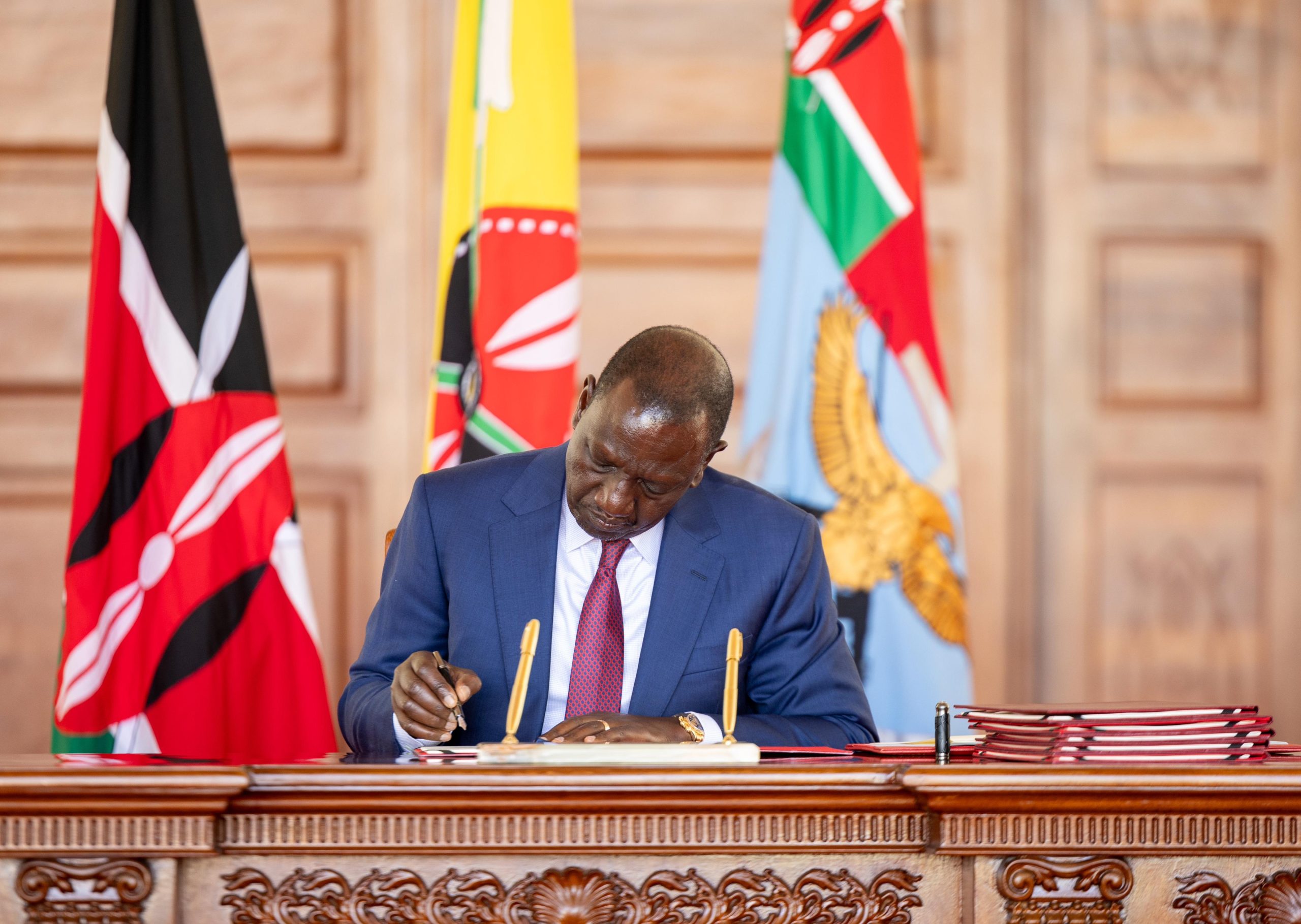
President William Ruto has defended his signing eight Bills into law when the country was mourning the death of former Prime Minister Raila Odinga.
President Ruto, who spoke at Thome Village in Laikipia County on Thursday, said the news of Mr Odinga’s death broke after he had arrived at the office, readying to sign the bills presented by the Speaker of the National Assembly and the Parliamentary leadership.
“There are those condemning me for assenting to the bill arguing that the country was in mourning. But that is the work I had planned for that particular day and I received the news of Mr Odinga’s death after I had arrived in my office for the day’s work,” said Dr Ruto.
The Head of State, who spoke during the burial ceremony of Mzee Weston Kirocho, the father of Inspector General of Police Douglas Kanja, said the bills had passed all the provisions of law.
Among the bills signed on the morning of October 15 was the Computer Misuse and Cybercrimes (Amendment Bill, 2024), which has generated controversy, while its implementation has been stopped by the High Court, pending hearing and determination of a suit opposing it.
Among those who have criticised the bill on grounds that it would limit the digital space freedom is former Chief Justice David Maraga. On Wednesday, he said that the law, if enforced, grants the government excessive power to access or shut down online platforms and that it poses a threat to free expression.
On Wednesday, the High Court suspended implementation of two sections of the law, in a case filed by gospel singer Reuben Kigame and the Kenya Human Rights Commission.
In the suit, Mr Kigame cited the amendment to Section 27, which criminalises the publication of “false, misleading or fictional data”, arguing that it is constitutionally vague. The case will be mentioned on November 5, 2025, for directions.
Before the President’s remarks, the leader of the Majority in the National Assembly, Kimani Ichung’wah, had defended the law, saying it is good for the country. He attributed the strong opposition against its implementation to “an emerging culture of misinformation”.
He explained that a bloggers’ lobby went to court in 2018 after the law was passed, but it was later restored, pointing out that in the recent court matter over the controversial bill, the Judiciary is being misled by the same bloggers.
The MP called for the church to support the government in disseminating truth, claiming that government critics have been spreading falsehoods.
“There has also been a lot of falsehoods on the recently assented National Land Commission Bill which is supposed to address issues of historical injustices. There are false claims that the government now plans to tax land with freehold titles. I humbly ask religious leaders to help us counter the lies,” said the Kikuyu MP.



